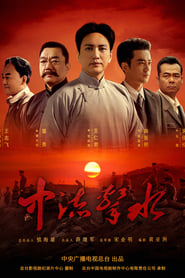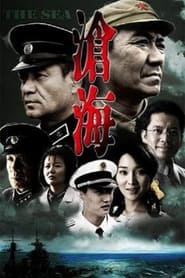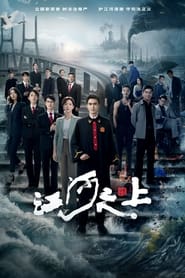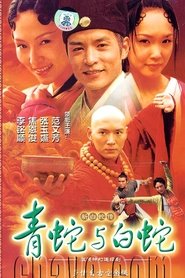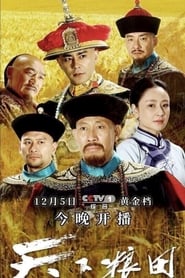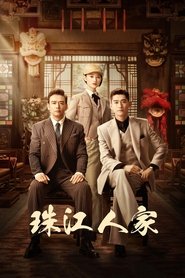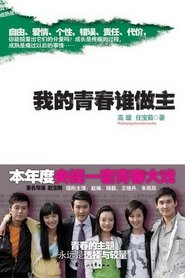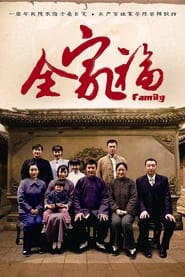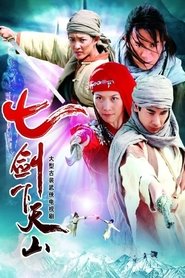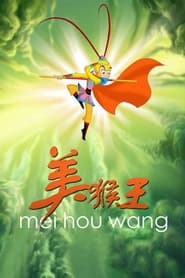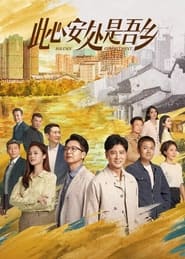Cctv 1 TV Series - Page 5
-
Medium Impact
2021
Medium Impact
2021
-
Cang Hai
2009
star 6It tells the story of Wang Shan Kui, Li Shan Kui, Ma Jian Cheng, and Lu Xin Quan as clues and the fate of their family members, covering the 60-year development of the People's Navy. (Source : Chinese = Baidu II Translation = MyDramaList) -
Above the Rivers
2024
star 7In the aftermath of a chemical plant explosion, Luo Yuan, Professor Xia Weidong, Geng Nian, and Lin Hailan join forces to form a trial team dedicated to environmental protection reform. -
The Identity of Father
2016
star 10In 1948, Yu Beiping, an important official of the Special Investigation Bureau, was transferred to Qingcheng by his superior and was ordered to investigate the murder case that occurred there. In fact, Yu Beiping's true identity is being investigated and suspected by his superior, and he is in danger all the time. Yu Beiping has to successfully complete the tasks assigned by his superior on one hand, deal with the cunning and insidious enemy on the other hand, and also bear the incomprehension and misunderstanding from his closest relatives. He is in a difficult battle. -
Madam White Snake
2001
star 7The television serial was based on a legendary folk tale, involving a snake spirit and her male human lover, but was adapted in this version to include the presence of a black snake who is the snake spirit's mentor and the White Snake Spirit being trapped under the pagoda for 20 years, when in the original tale she was trapped under the tower for centuries. As for the green snake, the white snake imprisons her for a short time before releasing her, unlike the original where she imprisoned her for three centuries. Xu Xian is also initially a good-for-nothing who, under the white snake's guidance, becomes an official. -
The Grainfield
2017
The Grainfield
2017
In the eight years of Qianlong's reign, a golden chamber bird inspection led to a catastrophic earthquake that caused disasters. It exposed the crisis of the shrinking of grain fields in Daqing. -
My Youthfulness
2009
star 6.5My Youthfulness is a highly popular idol drama which was a 2009 Chinese TV series. Directed by Zhao Baogang, this 32-episode play has drawn unexpectedly big audience ratings. From its pilot episode, the show attracted a large number of viewers due to the popularity of its cast and their affiliates. -
Family Portrait
2013
star 9.5After the demise of the feudal dynasty and half a century of war and turmoil, the ancient land of China finally ushered in a long-lost peace. The founding of New China has greatly changed the fate of the most ordinary people in the imperial city. The upright and honest Wang Mantang is a craftsman who grew up in the old society. With his unique skills in restoring ancient buildings, he leads his partners to shoulder the revolutionary task of restoring ancient buildings for the new society. -
Ray of Light
2023
star 8The drama tells the story of Hao Nan, an "Unruly Teacher", and a group of students with very different personalities, who define their dreams and courageously pursue them together. -
隋唐演义
1996
隋唐演义
1996
-
Pleasant Goat and Big Big Wolf
2016
star 7"The Shrunk Lambs: Hip-Hop Train Adventure" is an animated tale where a group of brave lambs embark on a mission to save the withering World Tree. They shrink in size, ride a hip-hop train, and face obstacles like raindrops and fallen leaves. With wit and courage, they overcome dangers, befriend insects, and outsmart the mischievous Big Big Wolf. Their resilience pays off as they successfully rejuvenate the World Tree, showcasing the power of teamwork and determination. -
Seven Swordsmen
2006
star 3.5Seven Swordsmen is a 2006 television series directed by Clarence Fok and produced by Tsui Hark. The series is adapted from Liang Yusheng's novels Qijian Xia Tianshan and Saiwai Qixia Zhuan. It is also the derived counterpart of the 2005 film Seven Swords, which was also directed and produced by Tsui Hark. -
Family on the Go 2
2015
Family on the Go 2
2015
-
Monkey King
2010
Monkey King
2010
-
Solemn Commitment
2023
Solemn Commitment
2023
Xiao Liming, the representative of the peace and security of Chinese builders, faces the complexity of social contradictions in network fraud, investment mine, corporate compliance, and other risky challenges, and interest groups to fight to protect the people's peace and happiness. -
Winter and Lion
2023
star 10In the autumn of 1950, Captain Wu Qianli of a certain army's Seventh Reconnaissance Company returned home. He wanted to guide his unruly younger brother, Wu Wanli, onto the right path. They both joined the army and headed to the battlefield of the Korean War, where they met experienced veterans. -
喜羊羊与灰太狼之羊羊趣冒险
2020
喜羊羊与灰太狼之羊羊趣冒险
2020

